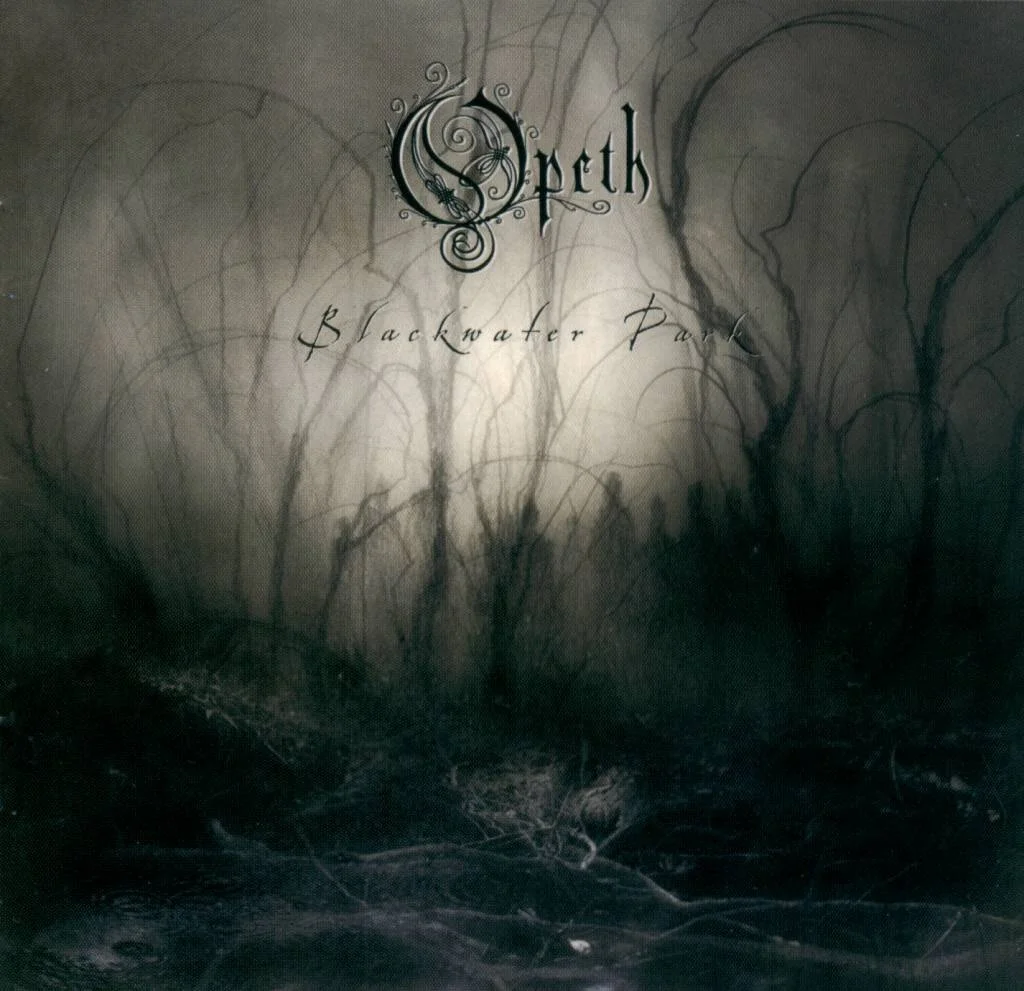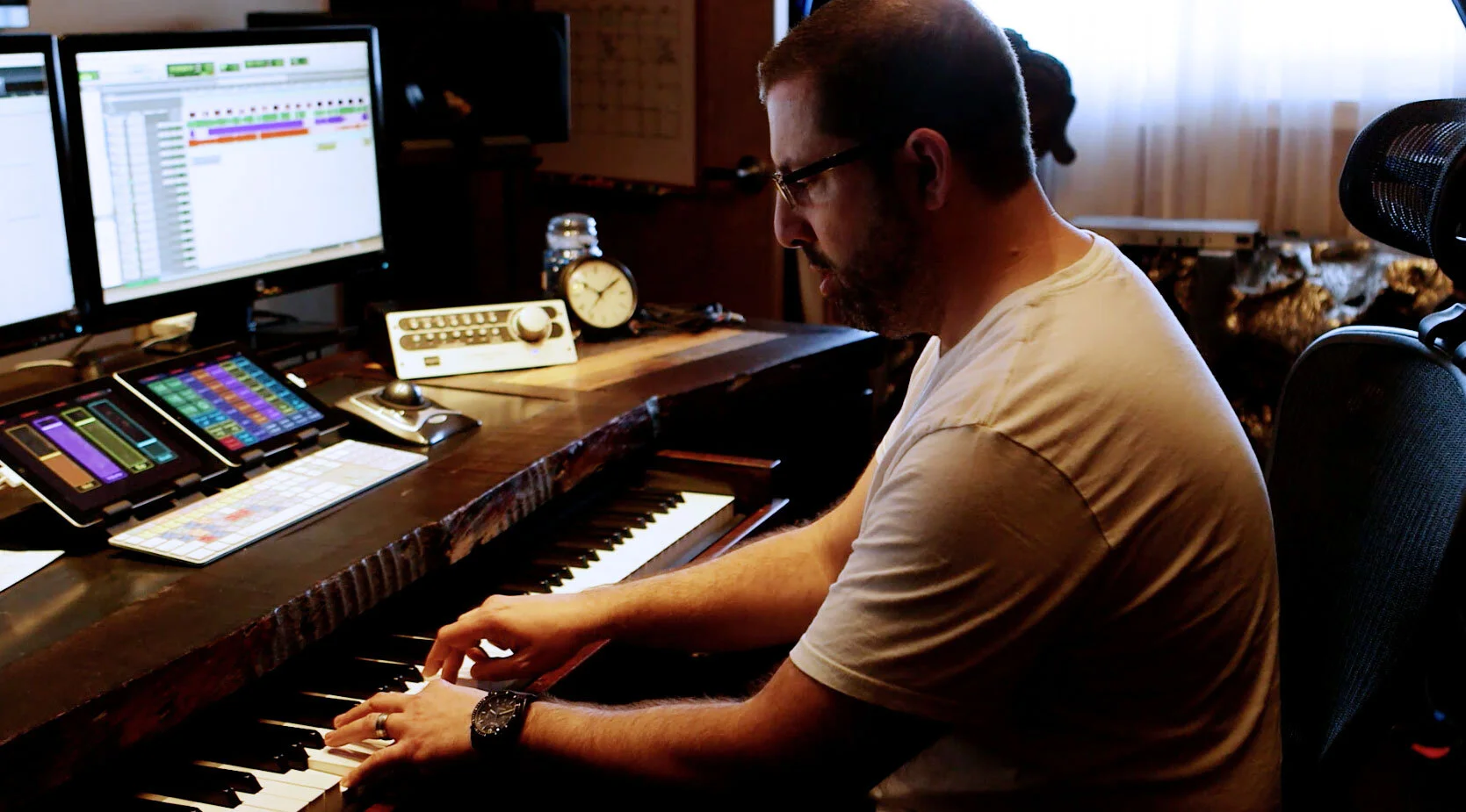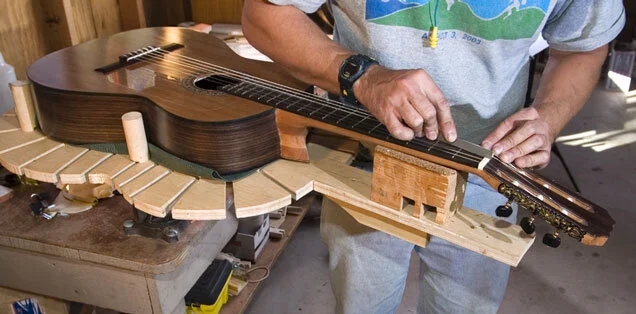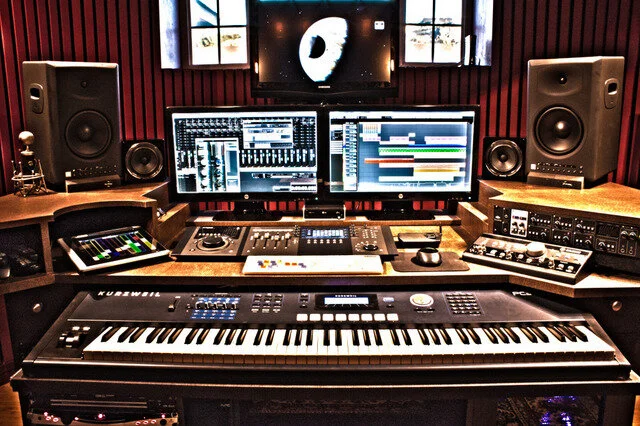Looking for the next big thing to tackle as a guitarist? Learning a new song or new technique is fun, but sometimes you need a big challenge - something to really push and motivate you.
As many of us around the world now have more free time (or at the very least, need a bit of a distraction), here are 5 projects I have either done, am doing or plan to do in the future which will hopefully inspire you to start your own musical project!
#1: Learn Your Favourite Album, Start to Finish
Learning bits and pieces of songs is great for practice, but you’ll feel a lot more accomplished if you have a few songs you can play in their entirety.
Naturally, if you have an album you absolutely love, learning how to play all of it is an even bigger accomplishment!
There’s a couple of ways you can do it, depending on the album:
If it’s already got lots of guitar in it and it’s fairly popular, see if you can find an official TAB book of the album. Many modern artists write out their own and distribute them to fans electronically (for a fee, but it’ll be worth it).
If that’s not available, look online for GuitarPro files for each song. They’re often a little less accurate, but they will often have all of the guitar parts tabbed out in detail, which is a lot easier than trying to decipher 6 guitar parts on a recording by ear (unless, of course, you want the extra challenge of learning a guitar song by ear!)
If the album only uses a little bit of guitar, see if you can find some guitar covers of the songs on the album and learn them. If not, you can make up your own cover for a super rewarding experience that will develop your skills, writing abilities and ears heaps.
Remember to break this project down into chunks. Maybe start with the easiest song, or the most memorable, or your favourite, and work your way through.
I’ve only completed this project in it’s entirety once (for Opeth’s Blackwater Park), but have attempted it (and may someday finish!) with: The Faceless’ Autotheism, Jason Becker’s Perpetual Burn and Metallica’s Master of Puppets (in fact, most of the Metallica discography).
Trust me, it never feels like much effort if you love the album!
#2 Master ONE Part of the Fretboard
This one is often one of those projects most guitarists have on the backburner…for waaaay too long.
Every time you’ve had to find a chord or scale and had a mental blank on how to work it out, you probably said to yourself “I really need to learn the fretboard better”.
Well, now’s your chance! It’s super easy, it just takes a week or two of commitment to get started.
But, there is a higher level of fretboard knowledge you can aim for. Here are some extra ideas:
Learn all of your major and minor triad shapes across the neck (here’s a starting point for how chords work across the fretboard)
Learn the CAGED system of chord shapes (I don’t personally use it, but lots of guitarists like it)
Learn where every note in ONE key is on the guitar (for example, all the notes in C Major, or A Minor Pentatonic)
Learn every 7th chord shape you can make on the guitar
The list is endless, and remember - don’t do ALL of these things. Pick one and get really good at it, then build on that knowledge by moving on to the next topic.
If you need help learning the notes on the guitar as a starting point, check out this guide.
I’ve personally done many of these over the years, but they constantly need refreshing if it’s a technique I don’t use much, so I’d highly recommend focusing on developing you knowledge in an area that you absolutely know you’re going to use all the time (for example, if you’re playing lots of rhythm guitar, focus on chords, leads focus on scales and so forth).
#3 Write a Song, EP, Album or Score
In my experience, it’s a lot easier to write music if you have an endpoint in mind.
For example, “Write some music” is way too vague. “Write a 5 track instrumental punk-rock EP” is heaps easier to work towards.
Put together some concepts, get together some reference material (i.e. other songs to steal from) and see what you can come up with!
If you’ve never tried songwriting before, I’d recommend following these steps to write your first chord song on the guitar. Not all guitarists use theory to write, but it makes the whole process much easier in the long run and will help you develop your own unique approach.
From there, start to plan out the steps involved. It could be something like:
Write out 10 riffs
Put the riffs together into a song
Add a drumbeat to it
Write some lyrics
Put it all together.
Rinse and repeat
but there’s no hard and fast rule on the best way to get into it, so be ready to experiment.
One final note on this one - these don’t have to be totally original compositions! You could do your own score based on your favourite game or movie, for example, if that gets you more excited than composing completely original material.
Personally, I’ve released 9 EPs/albums with Hybrid Nightmares, plus a bunch of smaller projects for uni or for specific projects along the way. I have on my list to write (or finish writing): an instrumental shred album, an 80s Heavy Metal rock opera, an acoustic collection and an avant garde soundscape project….but the list is always growing, and until I commit to finishing one, it will likely remain on my to-do list indefinitely. To avoid this problem, set a realistic time-frame when you’ll have your composition(s) “done” to prevent procrastination.
#4 Build a Guitar
This is certainly not a challenge for the faint of heart, but I can guarantee you every guitarist I have met who has done this has been extremely proud of what they’ve achieved.
There’s a few ways to approach this, depending on your skill level and your goals.
If you just want to tinker with your own guitars with a few mods and setups, check out this guide on some guitar maintenance tips. Just replacing the pickups can be a great little project.
Try a DIY kit or put together a parts-caster from a bunch of other guitars. Much easier to do and will help you learn fundamentally how guitars are put together.
If you want lots of structure and to end up with a finished product from scratch, talk to a luthier about tips, courses or recommendations. Brock (Brock Guitars) may be pretty close to offering a guitar builder course soon, if we can get him to take a break from making guitars, but he and most other luthiers are always keen to give you some tips to get started (though they all seem to keep a few trade secrets to themselves). A dedicated course is a great way to get all the basics down and avoid common pitfalls, if you can find a luthier close to you.
Remember that this can take a long time for your first guitar, and can be a reasonably expensive project depending on your approach (my brother-in-law Pat just finished his first one after more than a year of a course with a luthier and many weekends in his own garage, with a combined cost of over $3000 - but he’s pretty confident he could build another one now with the skills he’s learnt).
Personally, I am coming from a background of next to no woodworking skills (i.e. embarrassingly useless with power tools), so my plan is to start with a Stew Mac kit later this year for my first guitar.
#5 Build & Understand How to Use Your Home Studio
Recording and music production skills are extremely easy to learn and apply today due to abundance of YouTube tutorials and cheaper home studio gear (although, at the time of writing all music equipment in Australia is quite expensive due to the economic crisis, so I’d recommend going second hand).
If you can setup a rig at home where you can:
Record your guitar
Edit your guitar tracks and tone
Playback and create your own backing tracks
Rehearse with others
You’ll find your practice will get much easier and you’ll have a lot more fun playing in your studio.
This naturally leads on to being able to record and mix your own songs, but it will also develop your ears and help you understand music production a lot better.
If you don’t know where to start, there are heaps of beginner video tutorials online. Just pickup a simple recording interface and a program like Cubase, ProTools, Logic, Reaper or Garageband and follow the steps.
It can definitely help to combine this project with another goal, such as writing a song or mastering an entire album, as you can then record your efforts for release or just for your own records.
Personally, when I decided I wanted to understand recording and be able to do it myself, I went and did an entire undergraduate degree at Box Hill Institute. It’s led to work as a live and studio engineer, much faster songwriting and it’s even made me a better guitarist, as I’ve learnt what things sound good and bad on recordings vs live and can adapt my play-style to suit.
This list is by no means comprehensive, and what I’ve done may very well be of no interest to you, so use this as a springboard for your own guitar projects and goals.
Remember, if it’s something you’re passionate about and you plan out the steps it’ll take to get there, you’ll manage it fine. Just enjoy the journey and try not to focus on the endpoint too much, as there’s always another project to tackle.






